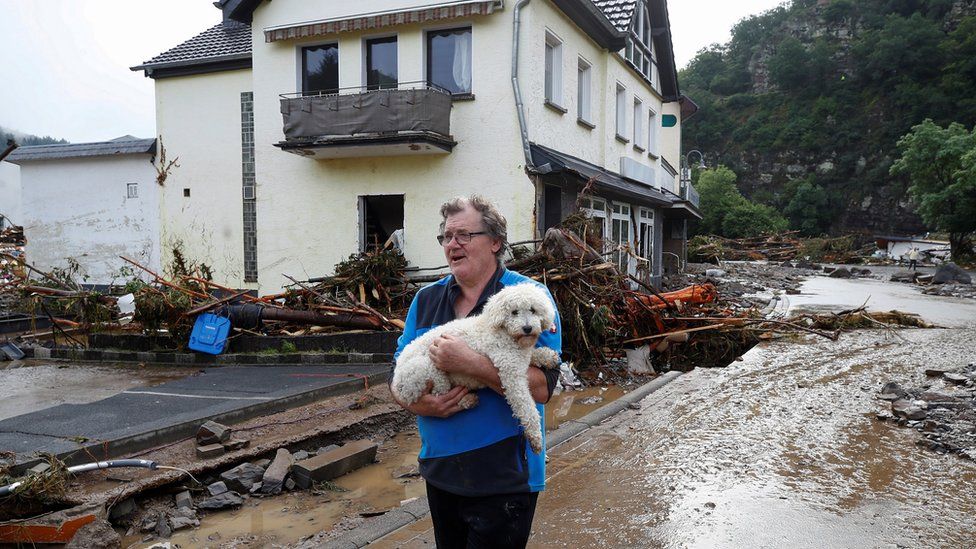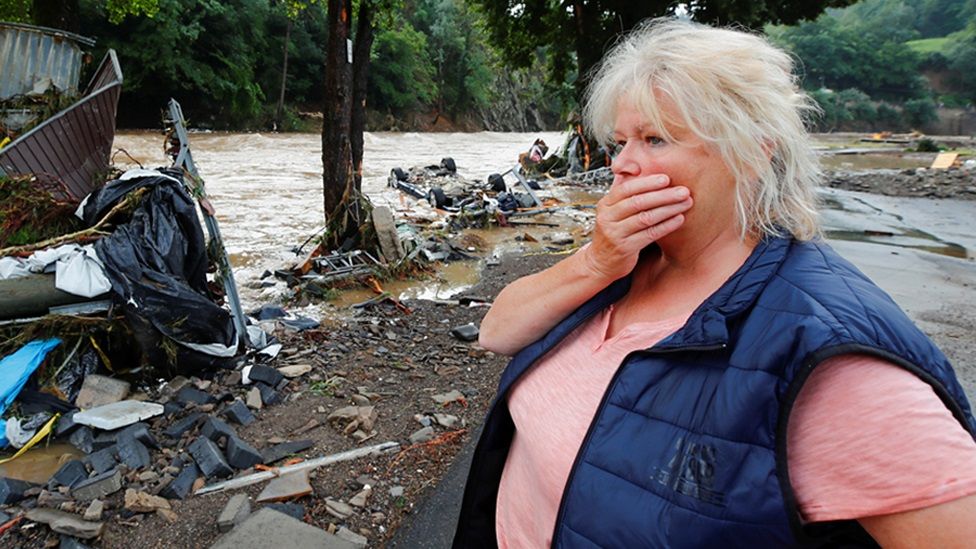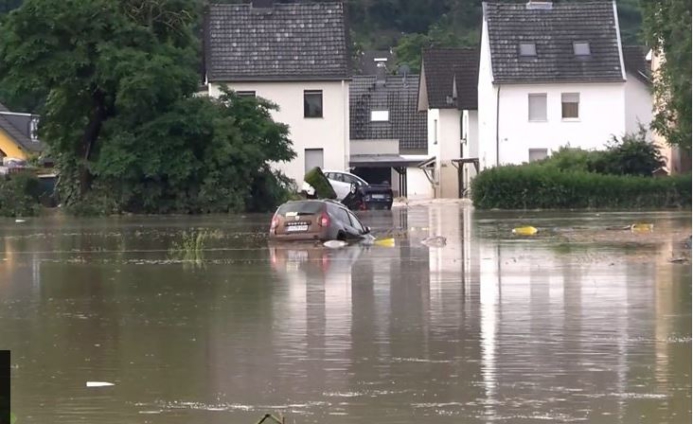At least 80 people have died and hundreds more are unaccounted for in Germany after some of the worst flooding in decades.
Record rainfall in western Europe caused rivers to burst their banks, devastating the region.
Belgium has also reported at least 11 dead after the extreme weather, which political leaders have blamed on climate change.
German Chancellor Angela Merkel has pledged full support for the victims.
Armin Laschet, the premier of North Rhine-Westphalia, blamed the extreme weather on global warming during a visit to a hard-hit area.
"We will be faced with such events over and over, and that means we need to speed up climate protection measures... because climate change isn't confined to one state," he said.
Experts say that climate change is expected to increase the frequency of extreme weather events, but linking any single event to global warming is complicated.


The German states of Rhineland-Palatinate and North Rhine-Westphalia were worst hit, but Belgium and the Netherlands are also badly affected, with further flooding in Luxembourg and Switzerland.
In the district of Ahrweiler, hundreds of people are unaccounted for, the authorities say. A spokeswoman for the local government said mobile networks had been put out of action, making it impossible to contact many people.
The village of Schuld (population 700) was almost entirely destroyed.
More heavy rain is forecast across the region on Friday.
— Météo Express (@MeteoExpress) July 15, 2021
La crue de la Vesdre atteint une ampleur dramatique à Verviers dans l'est de la Belgique ce matin ! Certaines rues sont noyées sous près de 2 mètres d'eau ! (© Katia Bogaert) pic.twitter.com/yDGNgflP1y
Meanwhile, in the town of Pepinster, 10 houses collapsed after the River Vesdre burst its banks.
Almost 2,000 people were forced to evacuate in the town of Chaudfontaine, Belgium's Le Soir newspaper reported.
Rail services in the southern half of Belgium have been suspended because of the extreme weather.
In the Netherlands, the province of Limburg has been left heavily flooded following downpours overnight.
Forecasts suggest more heavy rain is due in much of western Europe on Thursday and Friday.
Experts say that climate change is expected to increase the frequency of extreme weather events, but linking any single event to global warming is complicated.
Armin Laschet, the premier of North Rhine-Westphalia, blamed the extreme weather on global warming during a visit to a hard-hit area.
"We will be faced with such events over and over, and that means we need to speed up climate protection measures... because climate change isn't confined to one state," he said.
Latest Stories
-
Rafatu Inusah elected onto GOC Board
3 hours -
SAMSON’S TAKE: AG okays demo, how refreshing?
3 hours -
Trump questions Putin’s desire for peace after meeting Zelensky at the Vatican
4 hours -
Legend of The Week – George Darko
4 hours -
Kounde strike wins Copa del Rey final for Barcelona
9 hours -
Is NPP crying more than the bereaved in the Chief Justice saga?
10 hours -
“Elements within NPP worked against me for supporting ‘Ken must go'” – Cynthia Morrison
11 hours -
IMF Boss commends finance minister for strong commitment to economic reform
11 hours -
Cynthia Morrison advises Ghanaian women to diversify their skills to build wealth
12 hours -
UK deports 43 immigration offenders to Ghana and Nigeria
12 hours -
Piwak Natural Health urges Akosombo victims to rebuild with new donation
13 hours -
Ghana’s Para athlete Gilbert Ampiah wins bronze at Marrakech Grand Prix 2025
13 hours -
6 dead in Adansi Dompoase crash involving VIP bus and sprinter
13 hours -
Saturday’s heavy rainstorm caused outages within our network – ECG
14 hours -
Police arrest 3 over gold robbery at Wassa Afransie
15 hours

